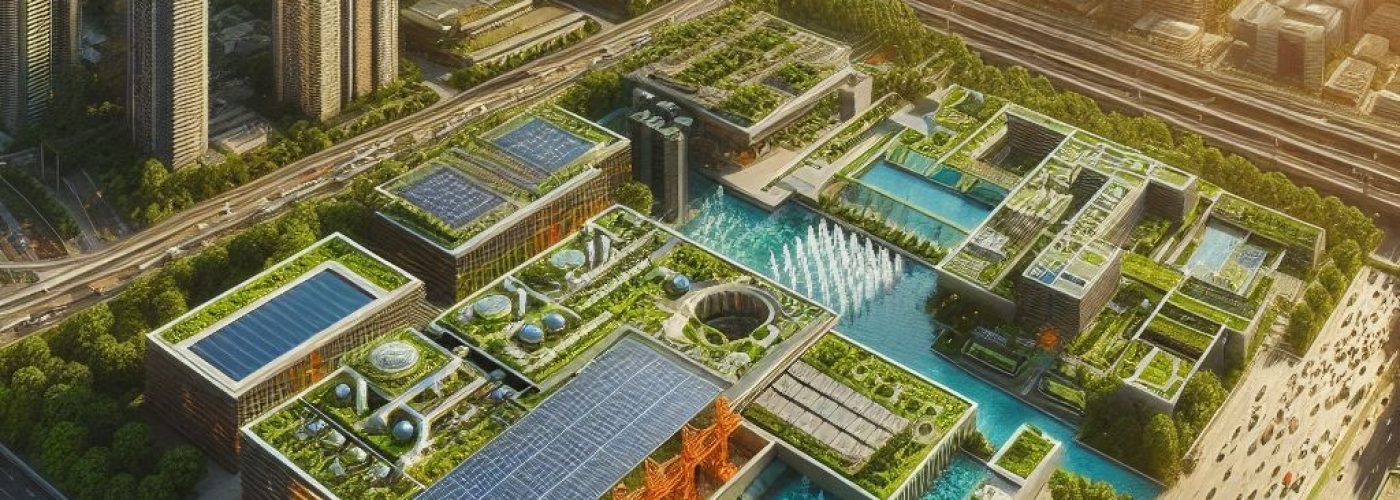Construction sustainability is more than a trend. It’s essential for our future. New regulations, innovative materials, and energy-efficient technologies are transforming how we build.
You will discover the key factors driving this shift toward greener practices. Explore how these elements create smarter, more responsible construction methods that benefit everyone involved.
Join me as we dive into practical insights. Let’s uncover what makes sustainable construction not just possible but vital for today and tomorrow.
1. Regulations Shaping the Future of Green Building
Regulations play a crucial role in shaping sustainable construction. Governments worldwide push for stricter environmental standards, which encourage builders to adopt greener practices.
New codes promote energy efficiency and reduce waste, influencing everything from material choices to project designs. This clearly propels innovation in the field.
Constructors who adopt these standards do more than meet requirements; they secure a competitive advantage. Such changes make certain that sustainability is woven into the fabric of upcoming building endeavors, to the benefit of humanity and the environment alike.
2. Sustainable Wastewater Management: The Role of MBBRs
Wastewater management stands at the forefront of construction sustainability. Advanced MBBR solutions streamline treatment processes, making them more efficient and environmentally friendly.
These systems utilize biofilm technology to enhance nutrient removal while minimizing energy consumption. By integrating such innovative approaches, builders can ensure cleaner water processes that support eco-friendly transformation efforts in the industry.
Effective wastewater management not only meets regulatory standards but also contributes significantly to a project’s overall sustainability profile, paving the way for greener communities.
3. Breakthrough Materials Revolutionizing Construction Practices
Innovative materials are changing the landscape of construction. Builders now have access to options that promote sustainability and efficiency, including:
- Products From Recycled Content: Utilization of recycled materials curtails waste and safeguards resources.
- Bamboo and Sustainable Timber Alternatives: Rapidly renewable plant sources offer sturdy substitutes for conventional wood.
- Enhanced Insulation Technologies: Cutting-edge insulation methods bolster energy conservation within structures.
These breakthroughs not only lower environmental impact but also enhance overall project performance, leading to a more sustainable future in construction.
4. Energy Efficiency Technologies Leading the Charge
Energy efficiency technologies are transforming construction practices and reducing environmental impact. Smart building systems now allow real-time monitoring of energy consumption, enabling adjustments that save resources.
Solar panels continue to gain traction, providing renewable energy solutions on-site. Advanced HVAC systems improve climate control while minimizing waste. These advancements do more than merely reduce overhead for property owners; they also amplify comfort and well-being for occupants.
With technology’s relentless progression, anticipate an assortment of increasingly energy-efficient choices driving the construction sector towards heightened sustainability.
Moving Forward: Strategies for Long-Term Impact
In plotting the course of construction’s future, anchoring in sustainable practices is essential. Firms ought to channel investment into educating their workforce and amassing tools that champion environmentally conscious techniques.
Forging alliances with stakeholders underpins a collective commitment to sustainability targets. Embracing avant-garde technologies and diligent compliance with ecological standards empowers the sector to forge significant progress in crafting edifices that favor both the present and future populace.





